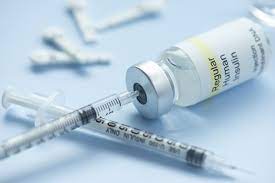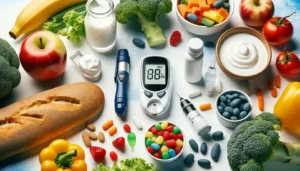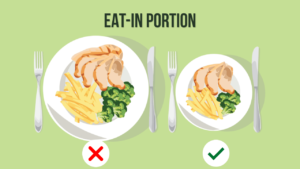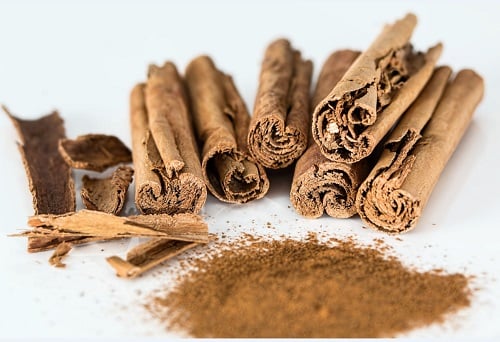High blood sugar, also known as hyperglycemia, is a condition that occurs when the levels of glucose in the blood are elevated beyond the normal range. It is a common concern for individuals with diabetes, but anyone can experience spikes in blood sugar levels. While medication and proper medical care are crucial for managing high blood sugar, incorporating natural home remedies can be a supportive and proactive approach. In this blog, we’ll explore several effective home remedies to help control and maintain healthy blood sugar levels.
Contents
How To Treat High Blood Sugar?

Medical treatment for high blood sugar, especially in individuals with diabetes, typically involves the use of medications to help regulate blood glucose levels. It’s important to note that the specific treatment plan may vary based on the type and severity of diabetes, as well as individual health factors. Here are common medical treatments for high blood sugar:
1. Insulin Therapy
- Rapid-Acting Insulin: This type of insulin starts working within minutes and is typically taken just before or right after meals to manage postprandial glucose levels.
- Short-Acting Insulin: Administered about 30 minutes before meals, short-acting insulin helps control blood sugar during meals.
- Intermediate-Acting Insulin: This type of insulin has a slower onset and longer duration, providing basal insulin coverage throughout the day and night.
- Long-Acting Insulin: Long-acting insulin helps maintain basal insulin levels over an extended period, usually once or twice a day.
2. Oral Medications
- Metformin: Often prescribed as a first-line treatment for type 2 diabetes, metformin helps lower blood glucose levels by reducing the amount of glucose produced by the liver and improving insulin sensitivity.
- Sulfonylureas: These medications stimulate the pancreas to release more insulin, helping to lower blood sugar levels. Examples include glipizide and glimepiride.
- Meglitinides: Similar to sulfonylureas, meglitinides stimulate insulin release, but they have a faster onset and shorter duration. Examples include repaglinide and nateglinide.
- DPP-4 Inhibitors: These drugs increase the levels of incretin hormones, which stimulate insulin release and inhibit glucagon production. Examples include sitagliptin and saxagliptin.
- GLP-1 Receptor Agonists: Injected medications that mimic the action of incretin hormones, promoting insulin release and slowing down stomach emptying. Examples include exenatide and liraglutide.
Why Do People Prefer Home Remedies for High Blood Sugar?
People often prefer home remedies for managing high blood sugar for several reasons, ranging from convenience to a desire for natural approaches. While it’s important to note that home remedies should complement, not replace, medical advice and treatment, individuals may opt for these approaches for the following reasons:
1. Natural and Holistic Approach: Home remedies often involve natural ingredients and lifestyle changes, aligning with a holistic approach to health. Many individuals appreciate the idea of addressing health concerns through dietary modifications, herbal remedies, and stress management.
2. Accessible and Cost-Effective: Home remedies are often readily available at home or can be easily obtained from local grocery stores. This accessibility makes them a cost-effective option compared to prescription medications or medical procedures.
3. Minimal Side Effects: Natural remedies are perceived to have fewer side effects compared to some medications. Individuals may be concerned about potential adverse reactions or long-term effects of pharmaceutical drugs and prefer the perceived safety of home remedies.
4. Empowerment and Control: Managing health conditions at home provides a sense of empowerment and control. People feel more involved in their well-being when they can make lifestyle changes, monitor their diet, and implement home remedies on their own terms.
5. Cultural and Traditional Beliefs: Many home remedies have roots in cultural and traditional practices. Individuals may prefer treatments that align with their cultural beliefs, passed down through generations as a trusted way to manage health issues.
6. Preventive and Wellness Focus: Home remedies often emphasize preventive measures and overall wellness. Adopting healthy habits, such as a balanced diet and regular exercise, can contribute not only to managing high blood sugar but also to overall well-being.
7. Limited Access to Healthcare: In some cases, individuals may have limited access to healthcare facilities or face financial constraints. Home remedies offer a practical and affordable option for managing health conditions in such situations.
8. Perceived Effectiveness: Some people find that certain home remedies work well for them, either through personal experience or anecdotal evidence. Positive outcomes from using natural approaches can reinforce the belief in their effectiveness.
Effective Home Remedies for High Blood Sugar
While medical intervention is crucial, several effective home remedies can complement traditional treatments. These remedies focus on lifestyle changes, dietary adjustments, and natural ingredients known for their potential to help regulate blood sugar levels.
1. Healthy Diet Choices

Maintaining a healthy diet is fundamental for managing high blood sugar levels.
A balanced meal plan that includes a mix of complex carbohydrates, lean proteins, and healthy fats can significantly impact glucose regulation.
Complex carbohydrates, found in whole grains and vegetables, are broken down more slowly, preventing rapid spikes in blood sugar.
Including lean proteins and healthy fats helps stabilize blood sugar levels and provides a sustained source of energy.
Non-Starchy Vegetables:
- Leafy greens (spinach, kale, lettuce)
- Bell peppers
- Cucumber
- Broccoli
- Cauliflower
- Brussels sprouts
- Asparagus
Lean Proteins:
- Skinless poultry (chicken, turkey)
- Fish (salmon, tuna, mackerel)
- Lean cuts of beef or pork
- Tofu
- Beans and legumes (lentils, chickpeas, black beans)
Whole Grains:
- Quinoa
- Brown rice
- Barley
- Bulgur
- Whole wheat pasta
- Oats (steel-cut or rolled oats)
Healthy Fats:
- Avocado
- Nuts and seeds (almonds, walnuts, chia seeds, flaxseeds)
- Olive oil
- Coconut oil
- Fatty fish (salmon, trout)
A crucial aspect of a healthy diet for managing high blood sugar is portion control. Consuming smaller, frequent meals throughout the day rather than large, infrequent ones can prevent excessive glucose release into the bloodstream. Monitoring carbohydrate intake and choosing foods with a low glycemic index can also contribute to better blood sugar control.
2. Herbal Teas
Cinnamon Tea
Cinnamon has been studied for its potential to enhance insulin sensitivity, thereby aiding in better blood sugar control. To make cinnamon tea, steep a cinnamon stick in hot water for about 15-20 minutes. Regular consumption of this tea, along with a healthy diet, may contribute to maintaining stable blood sugar levels.
Ginger Tea:
Ginger is known for its anti-inflammatory properties and potential benefits in improving insulin sensitivity. Making ginger tea involves boiling fresh ginger slices in water. This soothing beverage not only adds variety to the diet but may also positively impact blood sugar levels.
3. Hydration
Adequate hydration is crucial for overall health, and it plays a role in managing blood sugar levels. Water helps the kidneys flush out excess glucose through urine. Staying well-hydrated also supports various bodily functions, promoting overall well-being.
Individuals with high blood sugar should prioritize water consumption over sugary beverages. Sugar-sweetened drinks can lead to rapid spikes in blood sugar, counteracting efforts to maintain control. Aim to drink at least 8 glasses of water per day, and adjust the intake based on individual needs and activity levels.
4. Regular Exercise
Engaging in regular physical activity is a cornerstone of managing high blood sugar naturally. Aerobic exercises, such as walking, cycling, or swimming, have been shown to improve insulin sensitivity. Exercise helps the body utilize glucose more efficiently, reducing the risk of elevated blood sugar levels.
Consistency is key when it comes to incorporating exercise into one’s routine. Aim for at least 150 minutes of moderate-intensity aerobic activity per week, spread across most days. Additionally, including strength training exercises can further enhance insulin sensitivity.
5. Apple Cider Vinegar

Research suggests that apple cider vinegar may have potential benefits for blood sugar control. Consuming a tablespoon of apple cider vinegar diluted in a large glass of water before meals may help lower postprandial blood sugar levels. However, it’s essential to monitor individual responses and consult with a healthcare professional before making significant changes to the diet.
6. Bitter Melon
Bitter melon, a vegetable commonly used in traditional medicine, has been studied for its potential in regulating blood sugar levels. It contains compounds that may mimic the effects of insulin, facilitating glucose uptake. Bitter melon can be incorporated into the diet through cooking or taken in supplement form, but it’s crucial to consult with a healthcare provider for personalized guidance.
7. Fenugreek Seeds
Fenugreek seeds have long been used in traditional medicine for their potential anti-diabetic properties. Soaking fenugreek seeds overnight and consuming them in the morning has been associated with improved insulin function and lower blood sugar levels. These seeds can be included in various dishes or taken in the form of supplements, but as always, moderation is key.
8. Adequate Sleep
Quality sleep is a crucial component of overall health, and it plays a significant role in blood sugar regulation. Lack of sleep can lead to insulin resistance, making it more challenging for the body to control blood sugar levels. Ensuring 7-9 hours of quality sleep per night is essential for those looking to manage high blood sugar naturally.
Establishing a consistent sleep routine, creating a comfortable sleep environment, and practicing relaxation techniques before bedtime can contribute to better sleep quality.
9. Stress Management
Chronic stress can adversely impact blood sugar levels. When the body is under stress, it releases hormones that can lead to increased glucose production. Stress management techniques, such as meditation, deep breathing exercises, and yoga, can help mitigate the effects of stress on blood sugar.
Incorporating these practices into daily life promotes overall well-being and supports the body’s ability to maintain healthy blood sugar levels. Consistency is vital, and finding stress management techniques that resonate with individual preferences is key to long-term success.
10. Portion Control

Mindful eating and portion control are critical aspects of managing high blood sugar. Consuming smaller, balanced meals throughout the day prevents excessive glucose release and helps maintain stable blood sugar levels. Mindful eating involves paying attention to hunger and fullness cues, avoiding overeating, and savoring each bite.
Monitoring portion sizes of carbohydrate-rich foods is particularly important. Measuring and being aware of the quantity of food consumed can contribute to better blood sugar control. Combining portion control with a balanced diet and other lifestyle modifications enhances the effectiveness of overall blood sugar management.\
Conclusion
While home remedies can play a supportive role in managing high blood sugar, it’s crucial to consult with healthcare professionals for personalized advice. Adopting a holistic approach that combines these home remedies with medication, regular monitoring, and a healthy lifestyle can contribute to better blood sugar control and overall well-being. Remember, consistency is key, and making long-term lifestyle changes is the most effective way to manage high blood sugar naturally.
Do you want to get rid of diabetes? Join our online diabetes treatment program and reverse Diabetes naturally through lifestyle changes such as a Personalized Diet plan, Exercise, Yoga, dieticians, and health coaches.

